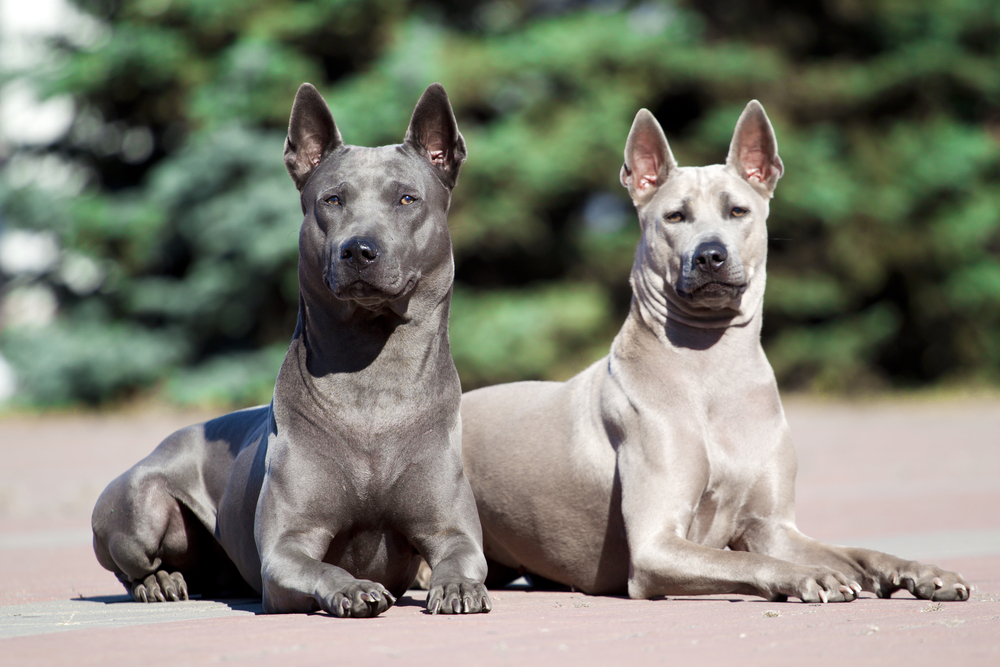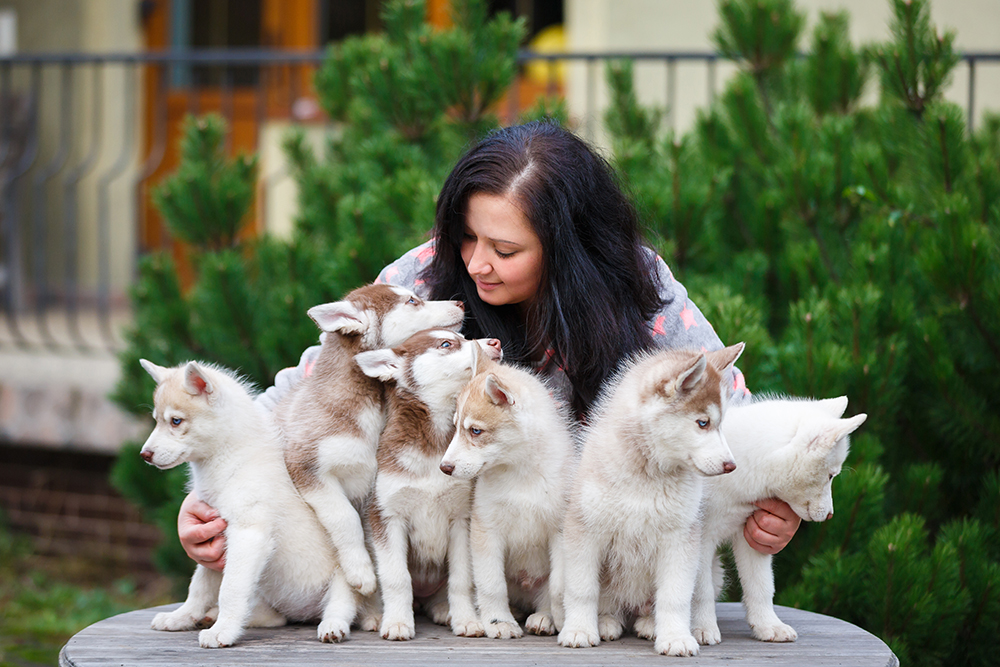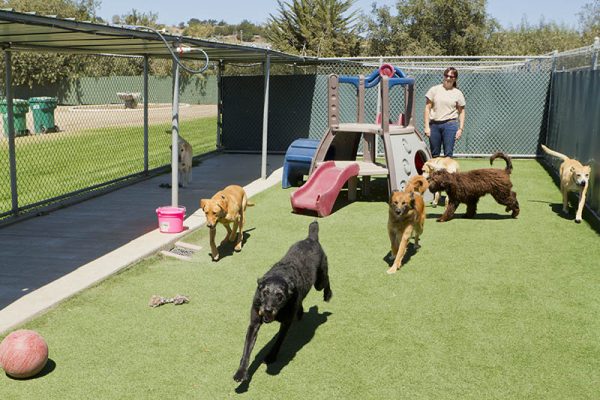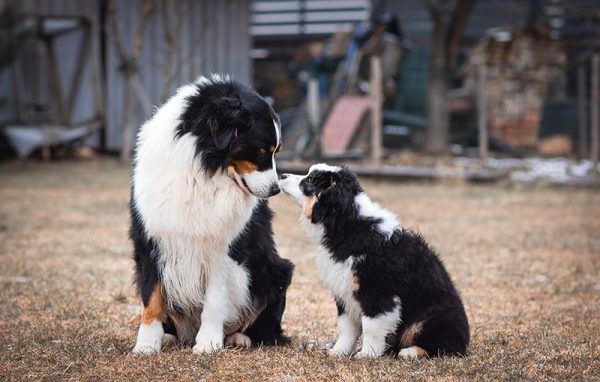In this article
Using terms like “profit” with “dog breeding” often causes controversy and for a good reason! With the prevalence of puppy mills and overbreeding, it’s critical that potential puppy owners and breeders understand the difference between ethical and unethical breeding.
If you love dogs and want to turn this love into a business, you should know that there is much more that goes into being a dog breeder than simply caring for cute puppies and raking in the dough!
Let’s examine what it takes to be a responsible and ethical dog breeder and why it’s typically not possible to make a significant profit.

What Are Unethical Breeders?
Anyone interested in becoming a breeder just for the money is already starting off badly! Breeders who overbreed risk the health and safety of their dogs. Too many puppies can also lead to the inability to care for them all properly.
The truth is that breeding is an expensive undertaking that requires significant upkeep and frequent veterinarian visits. The cost of dog food alone can be quite high! Many unethical breeders cut corners and do not possess adequate knowledge about dogs or the specific breed that they are breeding. They are more concerned with profits than the welfare of their dogs.
Owners who get their dogs from these types of breeders are more likely to have puppies that experience lifelong health problems because of the lack of proper care given to the mother and offspring.

What Do Dog Breeders Do?
1. Female Dog
To get started, you need the dogs for breeding, which may cost thousands of dollars, depending on the breed. Most female dogs should be at least 18 months to 2 years old before being bred and should have a good temperament. To keep her healthy, she should be given proper nutrition, preventative care such as vaccinations, and taken to the vet for regular health checks. Purebred dogs should be registered with the recognized breed registry, like the American Kennel Club in the United States. The registration papers certify that your dog is purebred and lists several generations of ancestors that are registered.
2. Choosing the Right Stud Dog
You need to take time to make sure the male dog you choose has all the right qualities. He should of course be healthy but should also have a good temperament, be health screened for the appropriate conditions (more on this later), and not be closely related to your female dog. If you don’t own the stud dog then a stud fee will be set by the stud dog’s owner which can be quite expensive.

3. Health Testing
Responsible, ethical breeders take steps to reduce the chance of their puppies being affected by inherited diseases that can affect the breed. You must research and understand which health tests and screening schemes are relevant to your breed, the American Kennel Club (AKC) website is a good starting point. Breeders who participate in AKC Breeder Programs certify that the parents have had the applicable health screens as recommended by their AKC parent club.
The costs of health screening for the parents will vary depending on the breed. Some tests, such as DNA swabs, can be done at home and sent to a special laboratory, while other tests require you to go to your local vet (for example X-rays for hip and elbow evaluation). Finally, for some screens you will need to go to a specialist center.
4. Limited Breeding Time
Breeders must develop their canine expertise and observational skills to recognize when their female dog is in heat. When a dog is ready to be mated, it is not always evident, and as a result, more (costly) tests are sometimes necessary.
Female dogs cycle and experience heat approximately every 6 months, and responsible breeders will only breed their dogs once a year. As a result, if you have one female dog, you will only have one litter of puppies each year. While having more female dogs may result in more puppies, it also means incurring more expenses and it’s important to make sure you have enough time to dedicate to raising all the puppies properly.

6. The Pregnancy and the Birth
Once your female dog is pregnant, you’ll need to take care of her changing nutritional needs and help her stay healthy. She will also need regular veterinarian visits, which may include things like ultrasound.
You will need to make arrangements for a whelping box for the mother and her puppies. However, the birthing process is not always straightforward. There may be complications during and after whelping that require emergency veterinary treatment. In addition, puppies can be stillborn or be unwell.
Before the puppies are ready to go to their new homes, they must be weaned onto puppy food, and undergo health checks and vaccinations. Good breeders also spend time training and socializing the puppies.
It is worth noting that a great deal of cleaning will be required throughout this entire process, and large veterinary bills may arise if anything goes wrong.
7. Finding Puppy Owners
Once your puppies are ready to leave their mother and littermates, which is usually when they’re around 8 to 10 weeks old, you will need to find suitable puppy owners. To advertise your puppies, you may need to pay to post them on a reputable website like the AKC Marketplace. It is also recommended that you build your own website so potential dog owners can easily find you and get all the necessary information.
Properly screen any potential buyers to ensure that your puppies are going to good homes. Many responsible breeders also establish relationships with new dog owners to keep up to date on how their puppies are doing.

Do Breeders Make a Profit?
The answer to this question varies from breeder to breeder. From an amateur’s viewpoint, when you see a breeder charging $2,000 or more for one puppy, and they have a litter of eight, that’s a tidy little profit of $16,000! But when you consider everything previously discussed, you can see how most of the money that gets made goes straight back into the care of the dogs and puppies.
Most ethical breeders will say that they don’t make much of a profit and that they do what they do because they love dogs and find it gratifying to provide healthy and well-adjusted puppies to good homes. Conversely, unethical breeders can undercharge enough to gain broader interest in their puppies, but they still make money because they do not spend enough on their dogs’ care.
So, yes, ethical breeders can make a profit, but if they are doing their job right, it isn’t much because they prioritize the well-being of their dogs and puppies.

Finding an Ethical Breeder
If you’re searching for a responsible dog breeder, there are a few ways to determine if they are ethical:
- The breeder will ask you questions about why you want a dog and how you plan to care for them. They might also ask you to fill out a questionnaire and ask for pictures of your home and backyard.
- Good breeders usually have waiting lists and don’t have puppies available once they’ve reached 8 weeks old. They might already have owners lined up even before the breeding.
- Check online reviews, and ask the breeder for the contact information of previous dog owners. A good breeder will be happy to provide this information.
- Ethical breeders will want to introduce you to the mother (and possibly father) of the puppies and show you the housing arrangements where their dogs and puppies live and sleep.
- Reputable breeders will provide potential buyers with important information like the dog’s medical history, vaccine records, and veterinarian details.
- If the dogs are purebred, the breeder will also provide you with their registration information from a kennel club like the AKC.

Conclusion
The work of a good breeder is often not profitable, and even if they do manage to earn a decent profit, they truly deserve it! Raising and caring for dogs takes a great deal of hard work and expense, and if the breeder is doing it right, they are also helping maintain the health and well-being of a breed’s bloodline.
Being a breeder is not easy and requires a significant amount of dedication. Breeders often experience heartbreak, lack of sleep, and other real challenges in the process. Although spending thousands of dollars on a puppy may seem extravagant, you are hopefully supporting someone who has a genuine love for dogs and is working hard to make a positive contribution to the canine world.
Featured Image Credit: Konstantin Tronin, Shutterstock


















